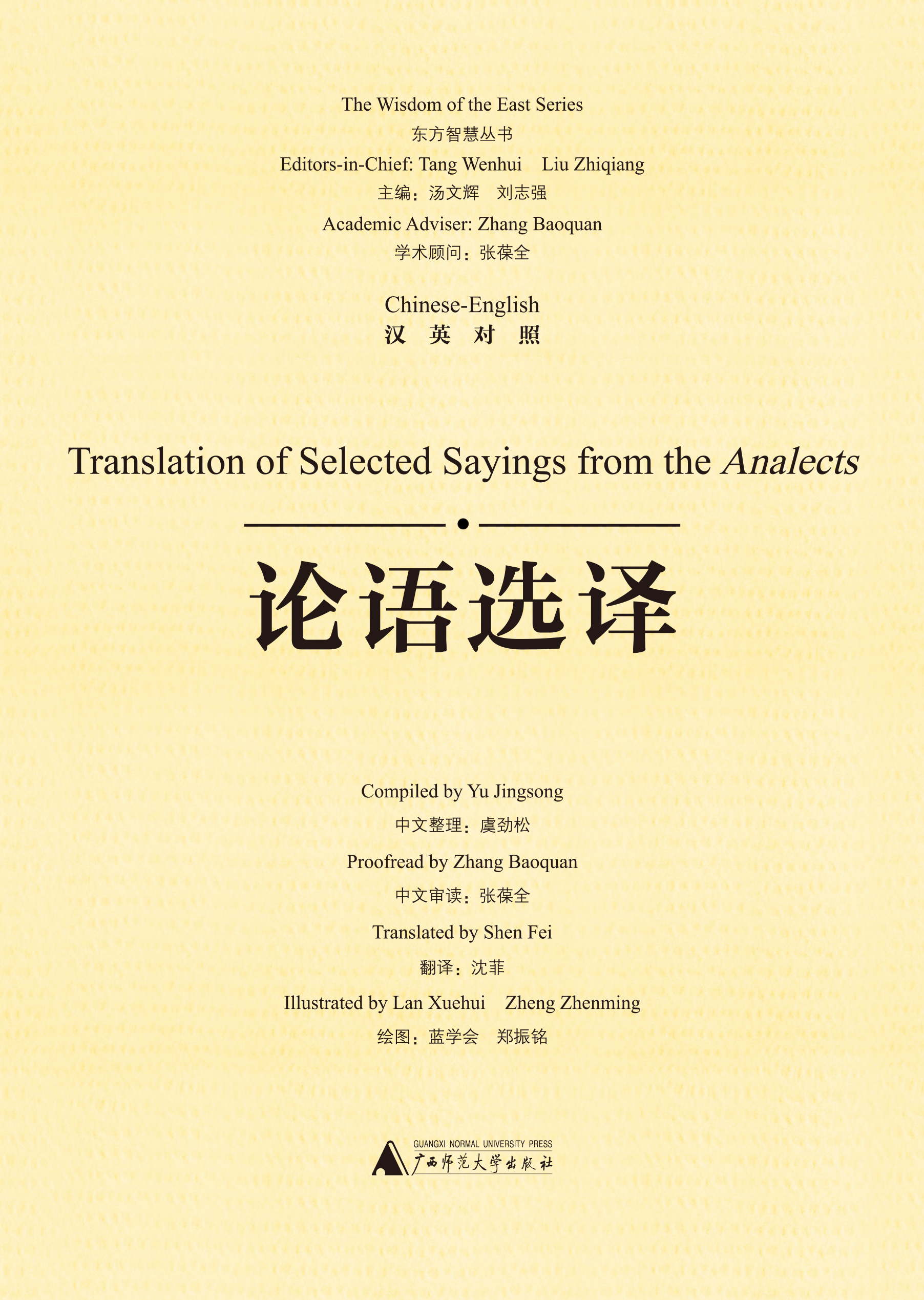

论语选译(汉英对照)
作者:虞劲松整理
出版时间:2015-08-01
出版社:广西师范大学出版社
《论语》是记载中国古代著名思想家、教育家、儒家学派创始人孔子及其弟子言行的语录体著作,是儒家学派最重要的经典,集中体现了孔子及儒家学派的政治主张、伦理思想、道德观念及教育原则等内容,成书于战国(公元前476 年-前221 年)初期,由孔子的弟子及其再传弟子记录而成。孔子是《论语》的中心。孔子名丘,字仲尼,春秋时期(公元前770 年-前476 年)鲁国陬邑(今山东曲阜市南辛镇)人,生于公元前551 年9 月28 日(农历八月二十七),卒于公元前479 年4 月11 日(农历二月十一)。孔子集华夏上古文化之大成,是当时社会上最博学者之一,后世尊为孔圣人、至圣先师、万世师表,被联合国教科文组织评选为“世界十大文化名人”之首。《论语》大量篇章是直接体现孔子思想观点的语录,也有对孔子仪态举止、个性气质的传神描述。并且,围绕孔子这一中心,《论语》还成功地展现了一些孔门弟子的形象。如子路的率直鲁莽,颜回的温良好学,子贡的聪颖善辩,曾皙的潇洒。。。
1. 学而时习之… ……………………………………………………… 2
2. 君子务本… ………………………………………………………… 4
3. 吾日三省吾身… …………………………………………………… 8
4. 入则孝,出则弟… ………………………………………………… 10
5. 贤贤易色… ………………………………………………………… 12
6. 慎终追远… ………………………………………………………… 16
7. 温良恭俭让… ……………………………………………………… 18
8. 礼之用,和为贵… ………………………………………………… 22
9. 贫而乐,富而好礼… ……………………………………………… 24
10. 为政以德…………………………………………………………… 28
11. 道之以德,齐之以礼……………………………………………… 30
12. 三十而立,四十而不惑…………………………………………… 32
13. 温故而知新………………………………………………………… 36
1.To learn and review from time to time what is learned… …………………3
2.The man of noble character devotes himself to the fundamentals… ……5
3.I examine myself several times a day… ……………………………………9
4. Fulfill their filial duties at home and obey their elder brothers when away
from home ………………………………………………………………………11
5.Value virtues more than lust upon a young woman…………………………13
6. Carefully attend to the funeral rites of one’s parents and earnestly worship
one’s ancestors…………………………………………………………………17
7.Gentleness, kindness, courtesy, restraint and magnanimity………………19
8.In the practice of rites, harmony is to be prized… …………………………23
9. The person is poor, but finds delight in pursuing knowledge, or rich, but
observing the rites……………………………………………………………25
10.Rule a country on the basis of morality……………………………………29
11. The general public is directed by moral education and constrained by
rites… …………………………………………………………………………31
12. Establish myself at 30 and have no doubts about the world at 40………33
13.Derive new reflections from reviewing what one’s learnt…………………37
